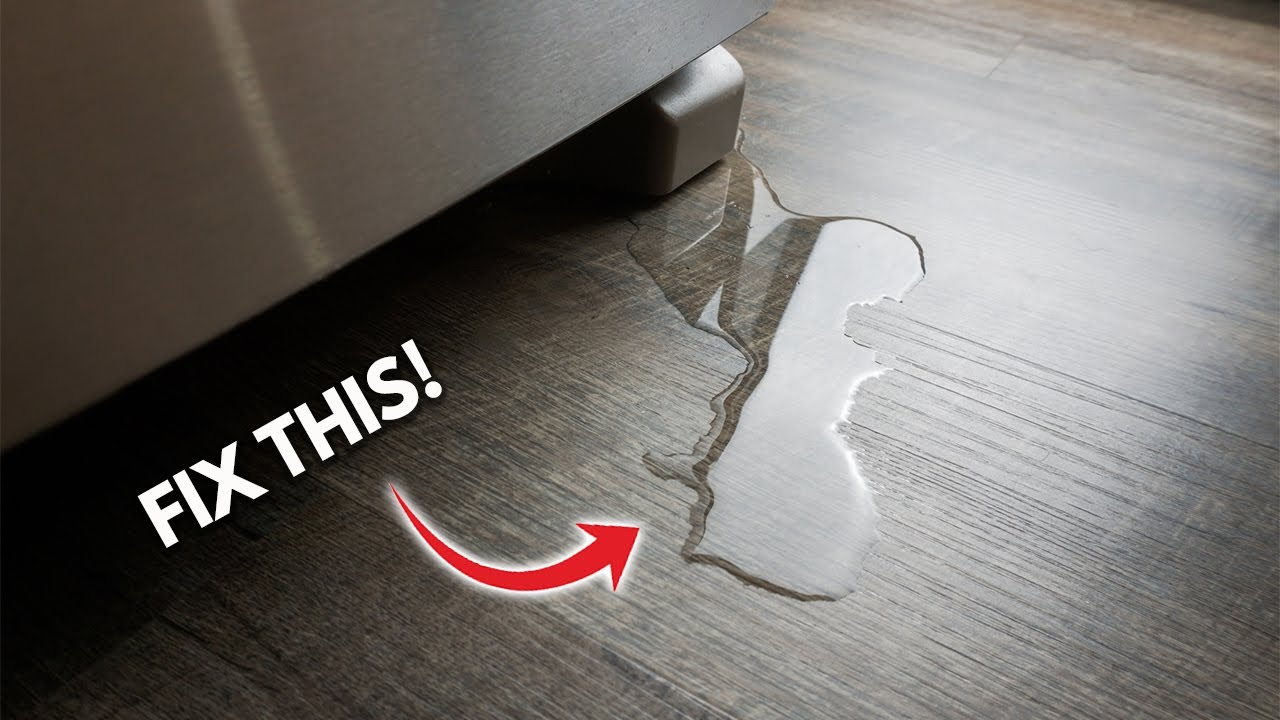
fridge water leaking
You cannot ignore a leaky refrigerator because any possible water damage will increase the cost of floor repairs and other expenses. Fortunately, if you know where to look, identifying a leaking refrigerator is simple. The solution might be as easy as clearing clogged pipes or levelling a refrigerator. Finding a way to connect to those wires is all that’s required. You can begin studying how to fix fridge water leaking by finding out what typically causes one.
Solutions for Fridge Water Leaking
1. Examine the water supply line
Leaky input valves and/or water supply lines are the cause of refrigerator leaks. If your water dispenser isn’t producing enough ice or isn’t flowing smoothly, check the water supply line. Find a location to store your perishables and disconnect the refrigerator before continuing.
Take your refrigerator out of the walls and look for the plastic hose that goes from your water filter to your ice machine. If there is a leak of water coming from the hose, replace it as that is the source of the leak. After turning off the water supply, replace the hose if you are performing the repair yourself.
2. Verify the Refrigerator’s Level
Verifying that the refrigerator is level is another easy fix. A drain pan may overflow with water if the refrigerator isn’t level. Level it by tilting it towards the back and levelling it from side to side. Make sure the bubble is in the centre by using a level.
Additionally, you may modify the fridge’s level by turning the adjustment screws up or down. It is necessary to remove the front cover grille in order to get at the screws.
3. Inspect the Drain Pan for Damage
Every now and then water that usually evaporates in a cracked drain pan will seep through a crack and produce leaks. You should not be concerned if there is water within the drain pan when you remove it from under your refrigerator.
5. Examine the Ice Maker
If the ice maker’s inlet tube clogs, it may also be the cause of a leaky refrigerator. Take the refrigerator’s plug out before disconnecting the ice maker. Remove the fasteners and unhook the wiring harness in order to examine it. To stop the water from dripping from the input tube, melt any ice with a hairdryer.
6. Inlet Valve
The input valve, which controls the water flow to the ice maker, is found at the rear of your refrigerator. Turn off the water at the saddle valve, which is usually under your refrigerator in the basement, and detach the supply line to see if the inlet valve is the problem.
Have someone turn on the saddle valve while you hold the tube over a bucket. The intake valve is most likely broken if water is flowing out of the tube. Remove the cover panel and the screws holding the inlet valve in place in order to fix it. After that, disconnect the wire and loosen the nuts holding the water lines together. Then, follow the instructions backwards to install the replacement valve.
Tighten the compression nuts on the inlet valve to stop any leaks you find. It’s time to replace the tube if it appears to be the source.
7. Water Fountain
Trapped air in the water line may be the reason if water is dropping from the dispenser. Pressure may build up as a result, forcing some water to escape through the dispenser’s hole. Try continuously purging water through the water dispenser for at least three minutes if this occurs.
8. Motor for Evaporator Fan
If a freezer’s evaporator fan motor malfunctions, it may not get cold enough, which could lead to leaks. The freezer is where the evaporator fan motor is typically found. It is readily obstructed by falling objects behind it or by a gathering of dust bunnies.
When that occurs, water may start to drip onto the floor as condensation forms on the coils. The coils can be cleaned using a big brush.
9. Seals for Doors
It may surprise you to learn that, should the freezer reach melting temperatures, a poorly sealed freezer door may cause leaks. Check for tears and cracks in the gaskets and seals on your doors. The gaskets will need to be changed if you locate them.
When to Get Help from a Professional
You may need to look into electrical issues even after you’ve looked into all the typical possibilities. Alternatively, the real issue can be with a compressor start relay or a refrigerator that won’t cool, which might be too difficult for you to fix yourself. After determining every other possible reason for the leak, get an expert. Knowing when to get a new refrigerator in case your old one finally dies is also crucial.
Get the best fridge repair in Dubai. Contact us at +97145490505


